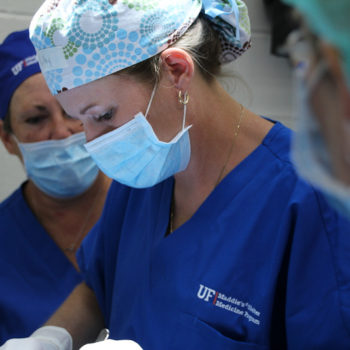What would happen if low-cost spay/neuter programs weren’t available?
In a study published in the Sept. 1, 2016, issue of the Journal of the American Veterinary Medical Association, researchers sought to identify the characteristics of people who used a reduced-cost spay/neuter program. They conducted 1,188 anonymous surveys and 99 telephone interviews with cat owners who had their cats sterilized at Quick Fix Clinic in Massachusetts.
Among the findings were that income and procedure cost are major drivers of delaying sterlizing pets, a delay that would only worsen if a low cost program wasn’t available:
Owner responses regarding reasons for sterilizing their cats and timing of sterilization in the present study aligned with the oft-cited beliefs about so-called “spay delay.” In our telephone interviews, it appeared that many cats could have been sterilized at an earlier date, with delays in spaying contributing to the number of cats that became pregnant prior to being brought to the clinic.
Overall, 12 of 61 (19.7%) female cats had given birth at least once before being brought to the clinic, and an additional cat was reported to be pregnant with its first litter when spayed (the number may have been greater, as owners were not asked about pregnant spays). In addition, 12 of 116 (10.3%) cats were offspring of another cat in the owner’s household, the consequence of an earlier failure to spay. Litters prior to sterilization are noted in other studies at both the state and national levels.
[….]
The present study moved beyond traditional quantitative analyses of the impact of reduced-cost spay-neuter programs and, in doing so, offered a more nuanced picture of the Quick Fix Clinic as well as the decisions, knowledge, and resources of those who used it. Our findings strongly suggested that spay-neuter decisions are related to owner income and procedure cost, which was consistent with findings of previous studies. Study findings also suggested that elimination of the Quick Fix Clinic would likely have exacerbated the problem of spay delay and indicated that there may be value in looking at gradations of financial need when evaluating relationships between income and spay-neuter decisions.
The abstract can be read at the link below. Subscribers can read the entire study, and it can also be purchased by non-subscribers.
Benka VA, McCobb E.; Characteristics of cats sterilized through a subsidized, reduced-cost spay-neuter program in Massachusetts and of owners who had cats sterilized through this program. J Am Vet Med Assoc. 2016 Sep 1;249(5):490-8. doi: 10.2460/javma.249.5.490.

